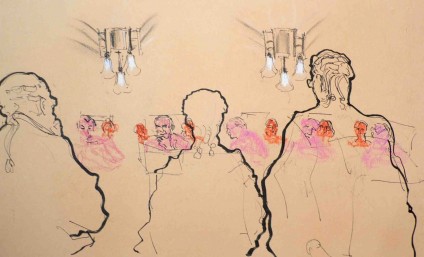[contextly_auto_sidebar]
It’s now been nearly 15 years since Jack Straw, then Home Secretary, informed the British public that he would ‘bring victims in from the cold and put their interests at the heart of the system’. As the nights grow longer, and the first signs of winter appear, it might be time to consider whether these promises have been fulfilled.
The last two decades have seen a number of major developments in how victims and witnesses are supported through the criminal justice system – the creation of the Witness Service at the Crown Court in 1994, the provision of ‘special measures’ for vulnerable and intimidated witnesses in 1999 and the introduction of Victim Personal Statements in 2001.
However, a recent survey by the Crown Prosecution Service provides some illuminating evidence of a criminal justice system that appears to be trying to support victims and witnesses but, in many ways, is still failing them more often than not. The survey found that half of all victims and over a third of witnesses felt they did not receive enough support before giving evidence in court. Over a third of victims were not offered the chance to make a Victim Personal Statement. And where victims were able to make a statement, over half did not even know whether their statement was used in their case.
Even where the system does get it right for victims and witnesses, there is a lack of consistency in providing services. For instance, there is an initiative to provide victims and witnesses with information or a DVD that explains court processes and what they can expect. The survey showed that, where this information is provided, the vast majority of victims and witnesses, over 95 per cent, find it helpful. However, less than a quarter of victims and witnesses ever actually receive this preparatory information.
The Criminal Justice Alliance’s latest briefing, Structured mayhem: Personal experiences of the Crown Court, provides some of the individual narratives that bring to life the dissatisfaction demonstrated in these statistics. The briefing is a digest of the significant research carried out by the Institute for Criminal Policy Research and published as Inside Crown Court.
Victims and witnesses interviewed for the research describe a judicial system that is invasive, frustrating, confusing and intimidating. Archaic ritual, language and dress-code alienate victims and witnesses and leave them feeling side-lined by the theatrics of the courtroom – a far cry from feeling at ‘the heart of the system’.
‘It’s just very frightening, very daunting when you walk in and you see all the chairs and the benches and everything set out and then you see all these people with their wigs on and the gowns.’
‘Julia’, witness
There is also a strong sense of ‘justice delayed is justice denied’ – the average time between someone being charged with an offence and the conclusion of a crown court trial has increased by a fifth in the last 18 months, from 304 to 360 days, and seems certain to increase further in light of the proposed court closures. Even when victims and witnesses finally do get to take part, they are often left feeling voiceless and irrelevant:
‘I did feel that I hadn’t done my part. I’d not said what I needed to say. I felt that I’d let everybody down because I don’t feel that I’d got my part of the story across.’
‘Amanda’, witness
The Conservative’s 2015 election manifesto promised to ‘strengthen victims’ rights further, with a new Victims’ Law that will enshrine key rights for victims’. The Queen’s Speech was similarly robust, promising that ‘Measures will be brought forward to increase the rights of victims of crime’. However, beyond the background briefing to the speech – which states that this new legislation will enshrine the key entitlements of the Victims’ Code and make it a right to make a Victim Personal Statement and read it out in court at sentencing and at the Parole Board – there is still no clarification as to what these measures will entail.
Enshrining the Victims’ Code as primary legislation is undoubtedly a welcome move, but there is evidence to suggest that much more needs to be done to ensure that victims and witnesses feel that they have been treated fairly and supported adequately by the criminal justice system.
The full CJA briefing, with a set of key findings and recommendations, is available here.
The Criminal Justice Alliance is a coalition of more than 90 organisations committed to improving the criminal justice system. Our members include campaigning charities, voluntary sector service providers, research institutions and staff associations involved in policy and practice across the criminal justice system.







